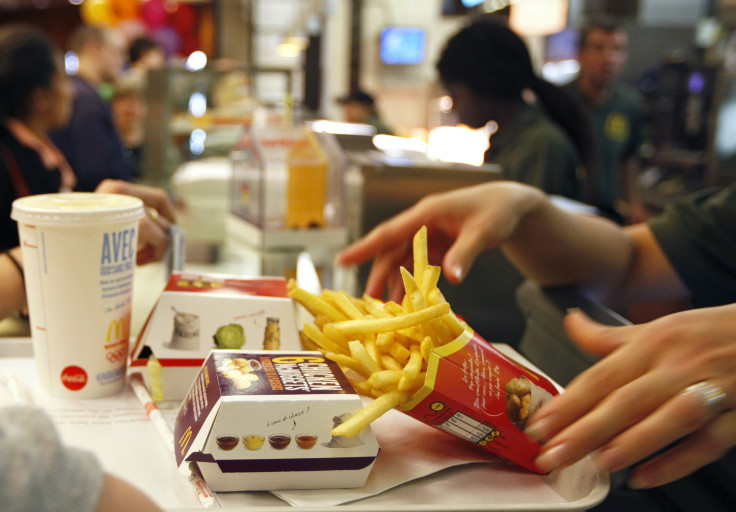What Is Good Gut Bacteria? Fast Food Kills Natural Allies, Worsens Obesity And Other Health Problems, Research Suggests

When Morgan Spurlock gained nearly 25 pounds in his monthlong all-McDonald's diet, featured in the film "Super Size Me," the 5,000 or so calories he was eating daily may not have been the only reason he gained so much weight. A British study found eating processed food can kill important stomach bacteria that help prevent obesity and numerous other health problems, such as heart disease and cancer.
Tim Spector, a genetic epidemiology professor at King's College London, ran a test with his 23-year-old son, Tom, putting him (Tom did so willingly) on a 10-day diet consisting solely of food from McDonald's: chicken nuggets, fries and burgers. For hydration, there was Coca Cola. Before the diet, about 3,500 species of bacteria existed in Tom's gut. During the 10 days he ate McDonald's, about 1,300 of those species died, and a new type of bacteria became dominant. "The implication is that the McDonald's diet killed 1,300 of my gut species," the son said in an interview with the Australian newspaper, PBS News reported.
Although obesity is often attributed to overeating, what people eat also plays a role, and not just in terms of whether a diet contains too many carbs or too much fat. The composition of bacteria in one's gut, called a microbiome, has also been found to play a role in weight changes. The fact that processed food can kill off some of the good bacteria that can help people control weight means it's not just the amount people eat that affects weight gain or loss, but the very nature of the food itself, and how processed it is.
"Most people nowadays consume fewer than 20 separate food types and many, if not most, are artificially refined," the elder Spector said, the Telegraph reported. He told the Australian, "It's clear that the more diverse your diet, the more diverse your microbes and the better your health at any age."
In the United States, nearly 35 percent of adults are obese, a medical condition that cost the United States $147 billion in 2008, the Centers for Disease Control and Prevention has reported.
© Copyright IBTimes 2024. All rights reserved.






















